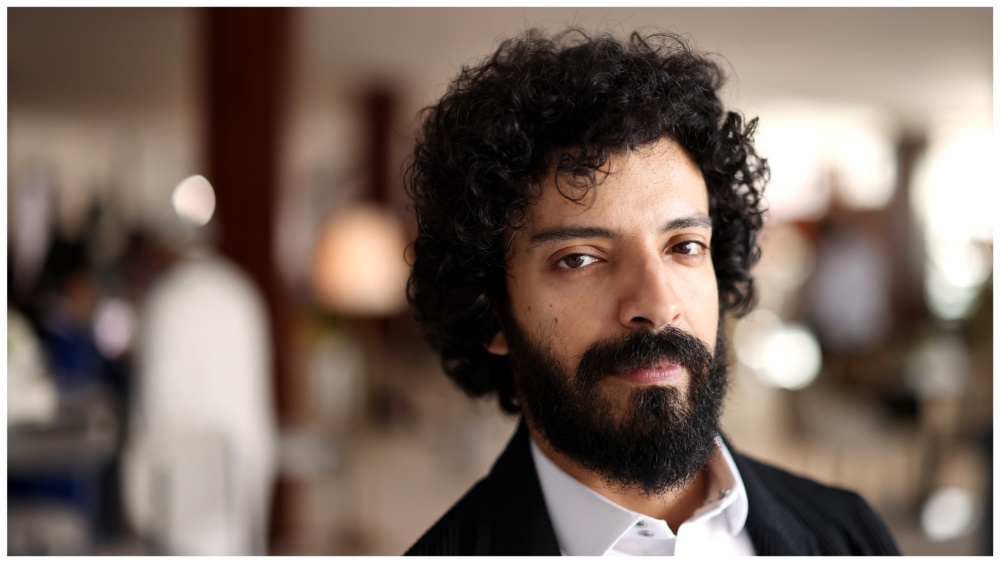
Rising Saudi Arabian star Yaqoub Alfarhan, who is known for playing the titular drug trafficker and serial killer in hit MBC TV series “Rashash,” plays a very different role in the drama “Norah” by pioneering Saudi director Tawfik Alzaidi, which is set in 1990s Saudi Arabia when conservatism was at its height and all forms of art and painting were banned for religion-related reasons.
In “Norah,” which world premiered at the Red Sea Film Festival in Jeddah, Alfarhan plays an artist named Nader who has given up painting and moved to a remote village to be a schoolteacher. There he intersects with this film’s titular character, played by Saudi newcomer Maria Bahrawi. “Norah” is an illiterate orphaned young woman who faces an arranged marriage in which she will be trapped and has a need for self expression. Their chaste encounter unleashes in “Norah” a passion for art and, by extension, for a better life away from the village.
Variety spoke to Alfarhan at the Red Sea fest about the nuances of his powerful character and the film’s cultural context.
With “Norah” you’ve gone from playing an epitomal bad guy to a heroic repressed artist. In both cases against the backdrop of a more conservative Saudi society than today. How did you prepare for this role?
Well Nader is definitely closer to me than Rashash, that’s for sure. It’s funny, because I don’t know why, but I’ve always wanted to be a teacher. I’ve always had this vivid dream where I see myself teaching. And to play a teacher who is also a painter, or in this case an artist, that’s really pretty great. The other thing I want to point out is that Tawfik and I go way back. We’ve been friends for 15 years. We not only share the same experience in the [nascent] industry, we’ve also shared the same human experience as artists.
Tell me more about Nader. What’s his conflict?
Basically since he couldn’t express himself through his passion for art, he decides to go to this village where he can try to forget this dream and start over. It’s like a blank slate for him. I think he’s reconnecting with his own inner child through the kids [whom he teaches].
What are the dynamics of his relationship with Norah?
She ignites something in him through her mysterious background. So in a way you could say that they fall in love, but it’s totally platonic because it’s true to that period of time [in Saudi]. I know this because I have older brothers and sisters, and I know their [romance] stories from back then. The relationships they had with the people whom they had feelings for. They didn’t express a lot of words to each other. So you feel that there is this sort of connection, but it’s platonic. It’s not about sex. It’s about discovering the other. Because men and women during that period of time were totally separated from birth. So, when a man would see someone, feel something towards a woman who was not from his family….There was something pure about it. It’s something that I can’t describe. Nader and Norah feel drawn to each other. But at that time, they don’t know how to interpret that in a modern way, let’s say.
How significant do think this movie is in Saudi today?
I think Tawfik was very smart. He tried to tell the story being very fair and balanced and without being too forcefully direct about the film’s subject matter. He was trying his best to be fair to all the elements that are at play in this film’s [cultural] context. And he covered a lot of ground. But again [doing this] without being really too straightforward. That’s why I think “Norah” is a powerful film.











